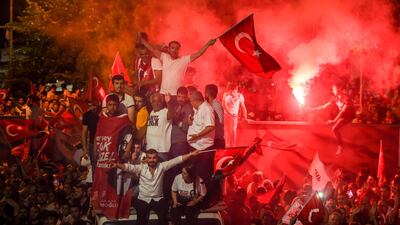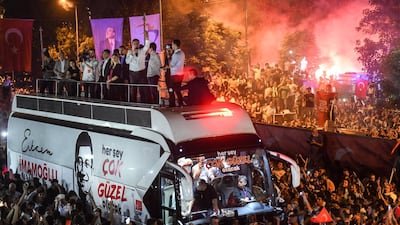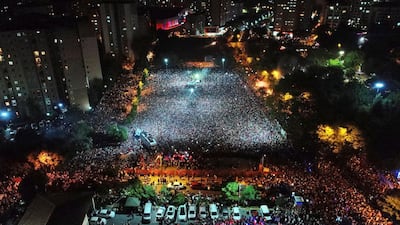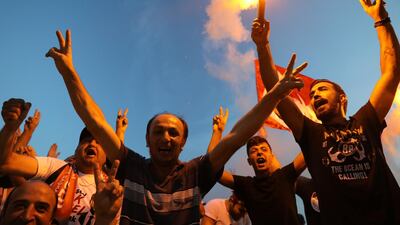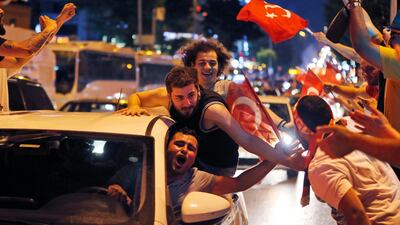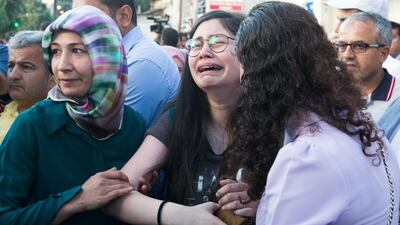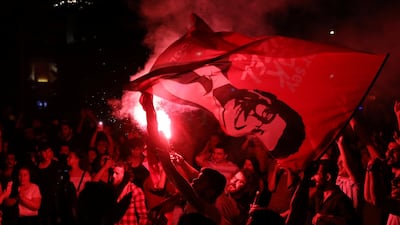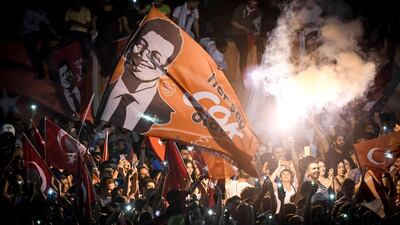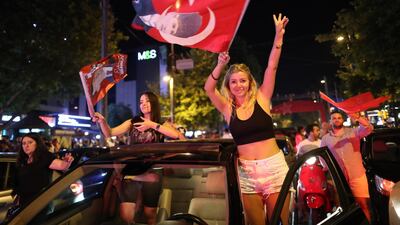The Turkish government seemed intent on drawing a line under its loss in Istanbul on Monday and turned its attention to matters of state.
Ekrem Imamoglu took 54 per cent of the vote in Sunday’s re-run of an election he won in March, only to see it annulled after objections by President Recep Tayyip Erdogan’s Justice and Development Party (AKP).
Mr Imamoglu's lead over Binali Yildirim grew from 13,700 in the first poll to more than 806,000 as he won in 28 of Istanbul’s 39 districts, including AKP strongholds such as Fatih.
The win by the Republican People’s Party (CHP) candidate was the largest in any Istanbul mayoral race in 35 years, including the 1994 election won by Mr Erdogan with 25 per cent of the ballot.
It was the first time since he took over leadership of Turkey in 2003 that Mr Erdogan had not given a balcony speech after a major election.
Pro-government newspaper columnists were near unanimous in suggesting that following the election, the government could focus on dealing with some of the problems it faces.
These include the faltering economy, a fall-out with the US over the purchase of Russian missiles, and a looming row with the EU over gas exploration off the coast of Cyprus.
Two minutes after congratulating Mr Imamoglu on Sunday night, Mr Erdogan sent a tweet highlighting foreign engagements such as the G-20 summit at the end of the month, a visit to China and a meeting of leaders from southern Europe.
After the opposition’s success, many suggested that the government might call early presidential and parliamentary elections – due in 2023 – to bolster its support, possibly as soon as this year.
Devlet Bahceli, the leader of the Nationalist Movement Party (MHP), which is allied to the AKP, tried to scotch such a suggestion.
“Turkey should now return to its real agenda and end the election process,” Mr Bahceli tweeted late on Sunday.
“In this regard, talking about early elections will be one of the biggest evils to do to this country.”
The MHP has only 49 sitting members but observers believe it wields greater influence because many of its supporters replaced officials who were removed after a 2016 coup attempt.
CHP spokesman Faik Oztrak also spoke against early elections.
“Turkey is really tired of elections,” Mr Oztrak said on Monday.
“There are promises made to our nation. Instead of thinking about early elections, priority should be given to the fulfilment of these promises.”
On Tuesday, Mr Erdogan will address his party in parliament before a meeting of the AKP executive committee.
Many will be watching for any hint of early national polls, although the president is not thought to favour such a tactic at a time of rising unemployment and high inflation.
The possibility of reshuffling his Cabinet could also be on the agenda, with his son-in-law Berat Albayrak, who has failed to impress investors in his time as Finance Minister, possibly moving to the Foreign Ministry.
Erik Meyersson, a senior economist at Sweden’s Handelsbanken, warned that Mr Erdogan could try to limit the powers of big city municipalities that are now in the hands of the CHP.
While being run by the AKP, these municipalities gave the lion’s share of public contracts to pro-government companies.
Alfonso Velasco Tamames, an analyst at the Economist Intelligence Unit, said that most of Istanbul’s $4 billion (Dh14.69bn) budget came from central government.
“Mr Erdogan could make life difficult for Mr Imamoglu,” Mr Tamames said.
Economic indicators reacted well to Mr Imamoglu’s victory, with the lira up 1.6 per cent against the US dollar at 5.72 on Monday morning.
The BIST-100 stock exchange rose 1.8 per cent to 95,671 points.
Timothy Ash, an economist at BlueBay Asset Management in London, said the election result was “probably the best outcome for the market”.

